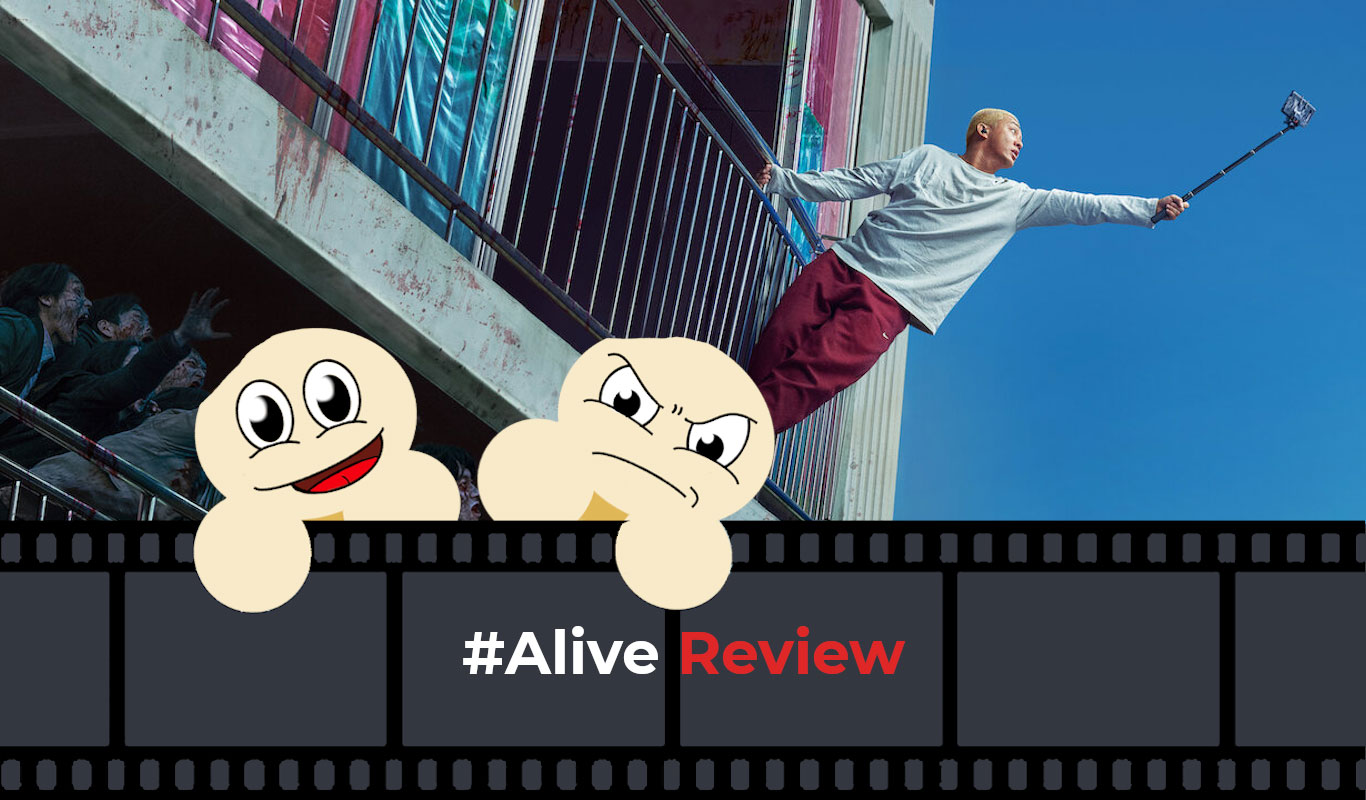#BarelyAlive
Introduction and Setting
I’ll openly admit I’m a sucker for films involving mutation, body horror, or zombies. I’ll also openly state that this movie bored the living hell out of me.
I went in knowing nothing about this film and was interested at first. Director Cho Il-hyung opens the film with an ordinary morning in the life of our main character, Oh Joon-woo (whose name I have had to look up while I write this because he was so forgettable), played by Yoo Ah-in. His routine is quickly interrupted as he turns from disturbing news broadcasts to the street outside his balcony, watching the horror unfold before him, utterly stunned.
The shots are good, moving between focusing on the grisly fates of few individuals to panning out to show the widespread chaos and our protagonist’s bleak situation, all the while backed up by an insistent, chilling soundtrack.
However, it was all downhill from there, thanks to a combination of missing scenes and a pointless subplot regarding a radio jack, which might I add, went entirely nowhere. The boring and overall incompetent characters also did not do the movie any favours. The film all culminates as one of my top-ten most rushed and disappointing endings of this year (the standard is low as well).
Characters
Joon-Woo
My first suspicion about this film came as Joon-woo’s neighbour (played by Hyun-Wook Lee) bursts into his apartment. While at first the pair’s interaction seemed intense, I began to notice that I was far more compelled by Joon-woo’s neighbour’s desperation than by Yoo’s performance.
Joon-woo continues to be the least interesting person throughout the rest of the film whenever anyone else is in a scene, and sometimes even when he’s alone. A large part of this, no doubt, is caused by the very dull way in which this character is written. We have little engagement with or insight into Joon-woo’s character through dialogue or even flashbacks, and this is not made up for by any subtlety in filmmaking or performative techniques.
To be frank, the character is completely one-note. From the first scene where we learn he is a gamer who lives in an apartment with his parents in Seoul, we never find out anything else about him, and it just isn’t interesting being stuck with him. We have little engagement with or insight into Joon-woo’s character. Joon-woo feels like a blank slate representing the generic youth to be filled in by the watcher. Given the issue of general modern isolation, there is a lot of room for commentary on this subject, which is an opportunity largely missed by the film.
The inability to go out, the breakdown in communication, and the anxiety of potentially becoming infected – these are all things we’ve experienced in the year of COVID-19. I myself was alone during the first wave of the virus – it really does take a toll on the psyche – so I am not without understanding when I see Joon-woo’s inaction.
While I have laid much blame on the writing here, I would, however, be remiss to omit that, all too often, Yoo’s acting just feels mediocre, frequently coming across as too much, too little, or just uninteresting.
Kim Yoo-bin
Our other protagonist, Kim Yoo-bin, is played by Shin-Hye Park. My impression of her is a different story, as I found myself engaged with her every moment she was on screen. Park seems to be able work what she has been given, and her excellent delivery of lines, her expressions, and body language kept me from switching this bad movie off.
This character is appealing because, while we know little about her, her apartment, actions, and dialogue indicate to us that she has a personality and leaves one wanting to know more about her and to follow her story.
Secondary Characters and Zombies
Other characters consisted mostly of zombies and those trying to escape them. We also got glimpses of people on TV and social media, and meet one other character towards the end, who we are expected to pluck our heartstrings at their dilemma, which, without giving spoilers, is a rushed attempt at a trope that has been in zombie films since the 2000 version of Dawn of the Dead.
While zombies are well known for their inconsistency across media, these guys were in a class of their own. The range of their intellect varies between the classic slow and stupid, to master predators, climbing up ropes and buildings to chase after prey, while mocking onlookers.
I also found their numbers to be inconsistent. The zombies would defy logic and vanish altogether one scene only for them to magically reappear in droves in the next. Is somebody ordering them in bulk between scenes?
Conclusion
This film presents little personality or twist to the cinematic tradition of the zombie apocalypse.
Much like the zombies within it, this film reeks of the bloated horde of zombie films that were especially common in the late 2000s and early 2010s following classics like “Dawn of the Dead”, “28 Days Later”, and “Shaun of the Dead”.
Like a mindless undead, it has nothing particular to say. The premise is very similar to the (far better) French “The Night Eats the World” (2018). Many shots look almost as if they’ve been completely lifted from the webtoon Dead Days (though it is not credited in the film). As explained (arguably in excess) above, the film is far from character-driven.
If you’re stuck at home bored in quarantine and want to watch someone boring who’s stuck at home, go ahead and—no, still don’t watch this, you’re better than that. If you want a good, nay, excellent alternative also made and set in Korea, try Yeon Sang-ho’s “Train to Busan” (2016) – which also has a sequel released this year titled “Peninsula” that I am looking forward to watching.
